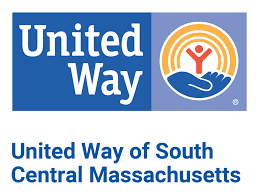June 8, 2015
Red tape glitches cut food stamp recipients: CLA fights food injustice.
Red tape glitches cut food stamp recipients
Telegram & Gazette Staff
Posted Jun. 7, 2015 at 6:00 AM
The Supplemental Nutrition Assistance Program, better known as food stamps, might not allow people to dine like royalty. But for the roughly 860,000 low-income Massachusetts residents who rely on it, almost half of whom are in families with elderly or disabled members, it’s a vital safety net. Lately, the net has had gaping holes that have threatened the ability of many to keep food on their plates.
“Mostly I buy milk, little stuff. I don’t buy steak. But at least it’s $118 (a month) I don’t have to spend on food,” said Jay, 71, a retired mechanic from Uxbridge. He requested that his last name not be used.
Jay lives on Social Security income of around $900 a month and receives MassHealth as well as SNAP benefits. A few months ago, he continued, “I went up to Hannaford’s and used my card and they told me it was no good.”
Jay was one of nearly 90,000 residents, 10 percent of the caseload statewide, cut from the SNAP program over the past year. Massachusetts’ decrease was nine times the national average.
In Worcester, the number of people receiving food stamps dropped by 12 percent to around 38,000 in January 2015 from 43,000 in September 2012.
The reductions have not come from spending cuts, widespread employment increases or other loss of recipients’ eligibility. Rather, they are a result of what Patricia J. Baker, a senior policy analyst at the Massachusetts Law Reform Institute, called “reckless implementation” of processing systems launched a year ago at the state Department of Transitional Assistance, the agency that administers the federally funded nutrition program.
Advocates in Central Massachusetts have spearheaded grassroots efforts to make sure eligible beneficiaries aren’t cut because of system SNAFUs. In late April, members of the Central Massachusetts Legislative Caucus sent a letter to Marylou Sudders, secretary of the state Executive Office of Health and Human Services, and Jeffrey McCue, commissioner of DTA, requesting that the system be fixed.
State officials’ progress in repairing the SNAP breakdown will be reported in a Telegram & Gazette story tomorrow.
In Jay’s case, he received a confusing “recertification delay notice” from DTA, which did not give him an exact reason but told him: “Your case will close because we have not been able to fully process it. You will not receive February 2015 SNAP benefits.”
Jay said he had been given several different phone numbers at DTA to call about his benefits. “Each time they told me I’d get it again and then I didn’t,” he said.
“Many here, they’re 75 to 90. They’re no longer driving, they’re hearing impaired, visually impaired, they’re alone. They can’t navigate the system,” said Marsha E. Petrillo, director of the Uxbridge Senior Center. “Unfortunately, it’s just too overwhelming so they don’t reapply.”
Ms. Petrillo called contacts at DTA and sat down at the computer with Jay to go through all his recertification documents, which had been properly submitted but were backlogged in DTA’s system and not processed in the required 30-day window. Weeks later Jay’s benefits were reinstated and he received retroactive payment.
Elizabeth Sheehan Castro, director of Worcester Food and Active Living Policy Council, said the “business modernization” processes at the root of the current problem were put in place by former Gov. Deval L. Patrick’s administration to address a multifold increase in case volume, combined with a decrease in DTA staffing, over the previous decade.
Overwhelmed DTA staff were approving recipients’ periodic recertification without a complete review. In 2013 the U.S. Department of Agriculture’s Food and Nutrition Services administrator issued a claim that the state overpaid $30 million in benefits dating back to 2009.
In April 2014 John Polanowicz, former secretary of health and human services, signed a settlement agreement with the USDA to invest $35 million “toward strengthening SNAP client service delivery and program integrity.”
Ms. Baker said, “At no point was there an allegation of fraud on the part of the recipients.”
However the system changes were put in place too hastily, according to advocates.
The new computer program that matched recipient data with state Department of Revenue files didn’t filter out ineligible or incorrect information. The department moved to staffing roles based on tasks such as phone support or document processing rather than assignments as client caseworkers. A phone system designed to handle 6,000 calls a day was averaging 20,000 or more, resulting in long wait times and dropped calls. Certification requests that weren’t completed by DTA within 30 days were automatically closed without a caseworker’s review.
“These are systemic issues that have just reached a crisis situation,” said Jean G. McMurray, executive director of the Worcester County Food Bank.
The food bank supplies food to 138 food pantries and other partner agencies throughout the county, which in turn serve more than 100,000 people. Ms. McMurray said the partner agencies have seen an increase in demand since 2013, some of which may be linked to people losing SNAP benefits.
“People are going hungry because of SNAP. It’s my No. 1 concern,” said Lisa Brovelli Kelley, outreach worker at Grafton Senior Center.
Ms. Kelley said she “hoards” the Stop & Shop gift cards people drop off as donations, to help tide people over if their benefits have been cut. Sometimes, she buys food for needy seniors herself.
Joseph W. Rej of Grafton, who will turn 65 this month, has had his SNAP benefits reduced but not denied.
“Joe’s really lucky because he advocates for himself,” Ms. Kelley said. “You can spend a day on the phone.”
“When you start trying to get them on the phone, you’ll spend a whole day,” Mr. Rej confirmed.
The semiretired, self-employed carpenter, who has received Social Security and SNAP for four years, said, “I can’t go and buy a filet, but I can go and buy sandwich meat.”
The $194 monthly food benefit he receives doesn’t cover household goods such as detergent, shampoo and toilet paper. And his Social Security has only gone up 1½ percent over the last two years.
“You still have to go to the food pantry once in a while to compensate,” Mr. Rej said.
Another client, Suzanne, who is disabled and lives in Northboro, has received SNAP benefits for five years. She also asked that her last name not be used.
“Every time I would get something from DTA, from SNAP, it was a different amount,” Suzanne said.
She said she received a letter to recertify her eligibility, and the deadline for all the forms to be submitted was the next day.
Suzanne was able to fax the forms so she wasn’t dropped. But she said, “it shouldn’t be that way. Food is very important to people.”
Diane Parker, who works on the Hunger Outreach Team at Worcester State University, said she spent 40 hours in October on the phone with DTA, helping clients navigate or appeal their SNAP applications.
“If they do qualify, I’m ready to go to battle to make sure they get their benefits,” Ms. Parker said.
“You have a lot of clients give up,” said Weayonnoh Nelson-Davies, a staff attorney at the Central West Justice Center, an affiliate of Community Legal Aid in Worcester. “Those are mostly my caseload now. It’s just a waste of resources for DTA and myself.”
She’s handled 10 to 15 SNAP denial cases since November. All have been successfully reinstated, although sometimes it takes weeks.
“For me as an advocate, denying someone something they have a right to is unjust,” Ms. Nelson-Davies said. “It’s an entitlement program.”
The Central West Justice Center, Worcester County Food Bank and Massachusetts Law Reform Institute will host a “SNAP Triage 101” training to overcome barriers to accessing SNAP benefits. It will be held Friday at Community Legal Aid, 405 Main St., Worcester,
For more information, contact wnelsondavies@cwjustice.org.















































